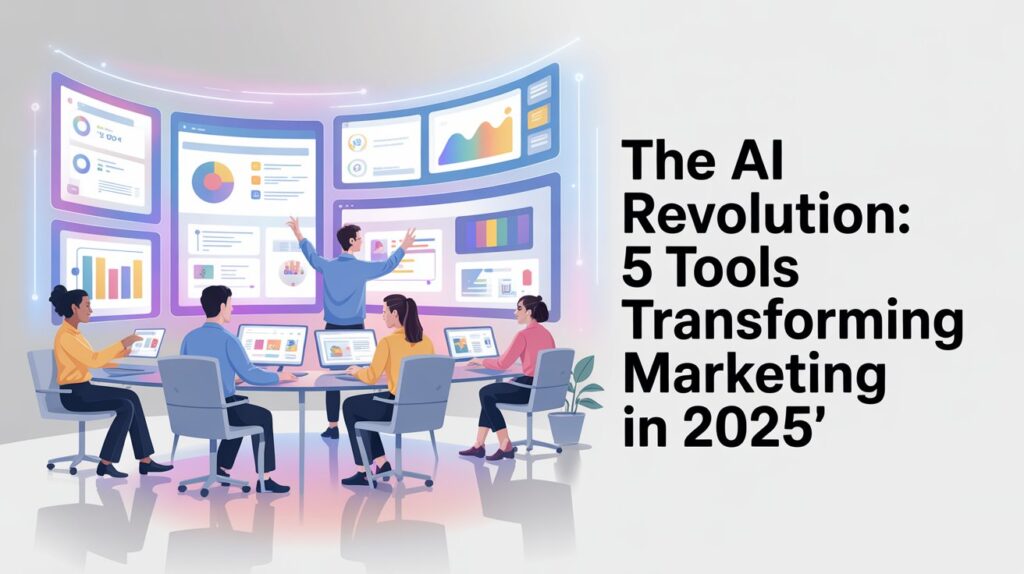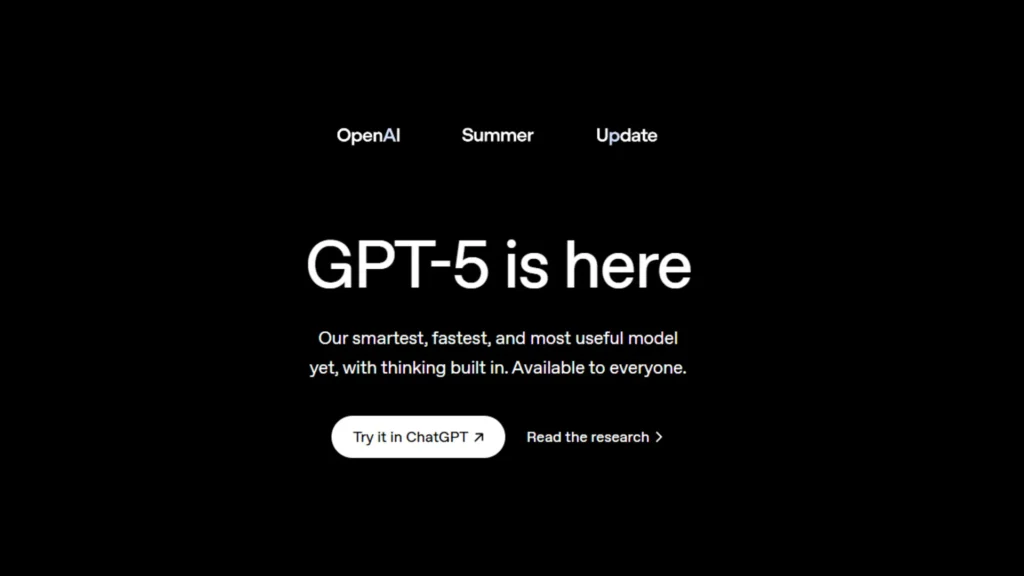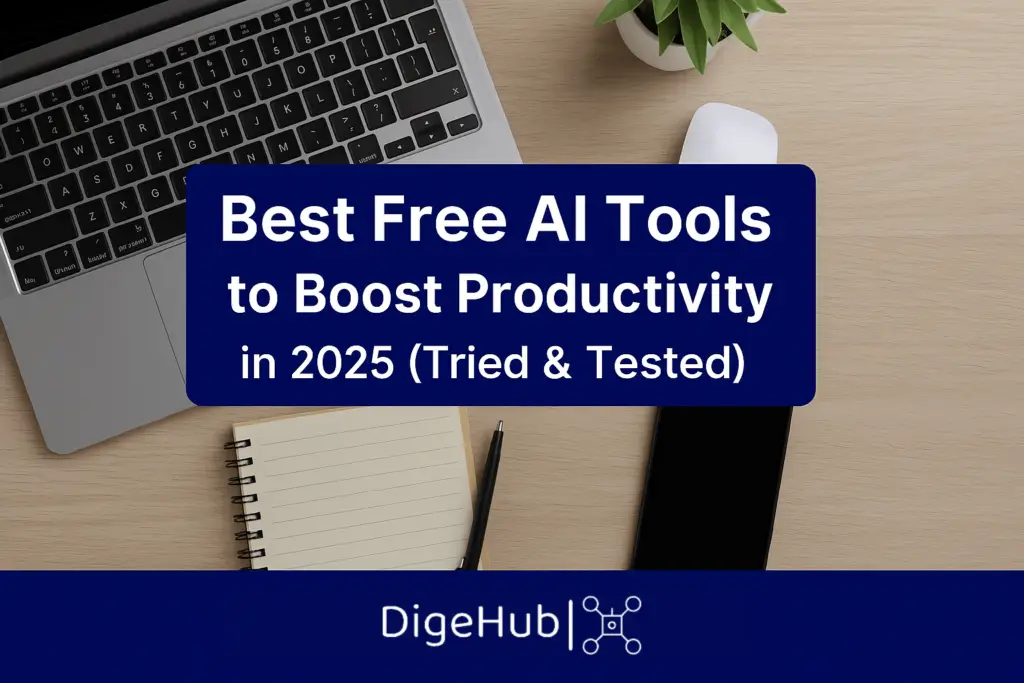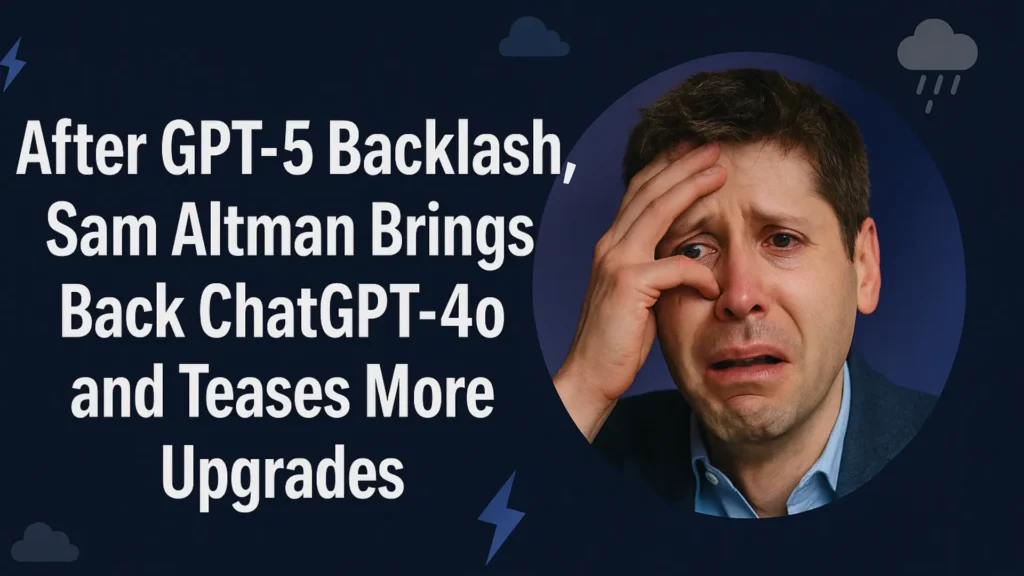The AI Revolution: 5 Tools That Will Transform Your Marketing in 2025

In today’s hyper competitive digital landscape, AI powered marketing tools have become essential for brands looking to scale smarter. Whether you’re a local business, e commerce brand, or B2B service provider, AI tools help streamline workflows, increase ROI, and improve customer experience. As AI in marketing evolves in 2025, businesses that leverage these advancements will outperform their competition.
- The AI Revolution: 5 Tools That Will Transform Your Marketing in 2025
- Why AI Is a Game Changer in 2025
- 1. ChatGPT 5 for Smarter Content Creation
- 2. Jasper AI for Automated Copywriting
- 3. Surfer SEO for Data Driven Content Optimization
- 4. Copy.ai for Quick Content Ideation
- 5. Smartly.io for AI Powered Ad Campaigns
- Choosing the Right Tool for Your Business
- How AI Tools Improve ROI and Efficiency
- How to Integrate These AI Tools into Your Current Marketing Stack
- Conclusion: Embracing AI for Scalable Growth
- FAQs
Why AI Is a Game Changer in 2025
Artificial Intelligence is no longer a futuristic buzzword. It’s actively reshaping how marketing teams operate:
- Automates repetitive tasks (email, ad generation, content creation)
- Analyzes vast datasets for consumer insights
- Enhances personalization in real time
- Improves ad targeting and budget allocation
By integrating these tools into your existing systems like CRM, CMS, and ad platforms, you can transform your marketing workflows.
1. ChatGPT 5 for Smarter Content Creation
ChatGPT 5, made by OpenAI, is still like the go-to AI assistant for content teams. The model helps with stuff like creating kinda nuanced content, writing scripts, automating customer support, and even drafting blogs without much fuss. drafting.
Key Features:
- Natural language processing
- Multi lingual content capabilities
- Semantic search integration
Whether you need blogs, product descriptions, or email sequences, ChatGPT can reduce content turnaround time dramatically. Businesses using platforms like blog writing services find even more value pairing AI with human SEO expertise.
2. Jasper AI for Automated Copywriting
Jasper AI excels at generating marketing focused copy. From high converting landing pages to social media captions, Jasper is designed for marketing teams.
Why Marketers Love Jasper:
- Templates for different copy styles
- AIDA and PAS frameworks included
- Tone adjustments (formal, casual, witty, etc.)
Use Jasper to quickly test multiple ad variants or generate email campaigns without hiring more writers. It complements services like Digital Marketing tools for businesses wanting speed and scale.
3. Surfer SEO for Data Driven Content Optimization
Surfer SEO integrates SEO data with AI recommendations to optimize your on page content. It ensures your content aligns with current SERP intent.
Benefits of Using Surfer:
- Real time content scoring
- Keyword suggestions with NLP
- SERP analyzer for competitor insights
Content teams working with Digehub’s SEO experts can use Surfer to gain a data driven edge, particularly in competitive niches like health, tech, and finance.
4. Copy.ai for Quick Content Ideation
Copy.ai is a go to for marketers looking to overcome writer’s block. Ideal for quick, short form content generation, it supports product descriptions, social media posts, and emails.
Use Cases:
- Rapid brainstorming
- Generating social captions
- Writing CTAs and taglines
Marketers building campaigns across platforms like Instagram or using SMM Services often pair Copy.ai with social analytics to improve audience engagement.
5. Smartly.io for AI Powered Ad Campaigns
Smartly.io automates paid social media ads with dynamic creatives powered by AI. Perfect for e commerce and performance marketing teams.
Standout Features:
- Cross channel automation (Facebook, Instagram, TikTok)
- Dynamic product ads
- A/B testing and performance analytics
When paired with SEM strategies, Smartly.io helps scale campaigns with consistent ROI across channels.
Choosing the Right Tool for Your Business
Here’s a quick comparison table to help evaluate:
| Tool | Best For | Key Feature | Pricing Range |
|---|---|---|---|
| ChatGPT5 | Long form content, support | Language depth | $$ |
| Jasper AI | Ad copy, emails, blogs | Marketing templates | $$$ |
| Surfer SEO | On page SEO optimization | SERP analysis | $$ |
| Copy.ai | Short form content ideation | Tagline generation | $ |
| Smartly.io | Paid ads automation | Dynamic ad creatives | $$$$ |
How AI Tools Improve ROI and Efficiency
Here’s how these tools impact marketing metrics:
- Higher conversion rates from better targeting
- Faster campaign execution with automation
- Improved content performance through data insights
- Reduced operational costs by replacing manual tasks
When used strategically alongside SEO guide or mobile app development, these tools enhance the customer journey across all touchpoints.
How to Integrate These AI Tools into Your Current Marketing Stack
Knowing which AI tools are trending in 2025 is only half the battle. The true impact comes from seamless integration into your existing marketing stack. Whether you’re running a lean solo operation or managing an enterprise grade marketing team, here’s how to ensure these tools actually boost performance — not complicate your workflow.
Start with a clear goal.
AI isn’t magic — it’s a tool that delivers based on how you wield it. Do you want to automate repetitive tasks? Improve customer insights? Personalize campaigns at scale? Define your primary objective, and pick tools that align with that goal rather than chasing hype.
Audit your current tools.
You likely already use platforms like Google Analytics, HubSpot, Meta Ads Manager, or SEMrush. Choose AI tools that complement — not duplicate — what’s already working. For example, if your team uses Canva, integrating AI design features like those from Adobe Firefly might streamline workflows without causing friction.
Train your team.
Tools like Jasper, ChatGPT, or Surfer AI are only as good as the people using them. Invest time in training sessions or quick-start guides to help your team understand the tools’ capabilities, limitations, and best practices.
Start with pilot campaigns.
Before rolling out AI tools across your entire marketing operation, test them in one area — such as email automation or blog content creation. Measure improvements in speed, engagement, and ROI. Use that data to scale with confidence.
Review and refine regularly.
AI in 2025 moves fast. A tool that was revolutionary in January may become obsolete by December. Schedule quarterly reviews to assess which tools are delivering and which need to be replaced or upgraded.
Conclusion: Embracing AI for Scalable Growth
The marketing landscape in 2025 belongs to businesses that embrace AI. Whether you’re crafting content, optimizing SEO, or launching ad campaigns, these tools offer scalable solutions that save time and maximize output. Platforms like Digehub help integrate AI into your existing strategy for long term success.
FAQs
1. Are AI marketing tools expensive?
Not necessarily. Tools like Copy.ai and Surfer SEO offer affordable tiers, especially for small businesses.
2. Can AI fully replace human marketers?
AI enhances productivity but lacks emotional intelligence and creativity. The best results come from human + AI collaboration.
3. What industries benefit most from AI marketing tools?
E commerce, SaaS, digital agencies, and local businesses see the most impact from automated content and ad optimization.
4. Is AI content penalized by Google?
Not if it’s useful and relevant. Google rewards helpful content regardless of how it’s produced. Just ensure it’s edited and contextually valuable.
5. How do I choose the right AI tool for my business?
Assess your biggest bottlenecks: content creation, SEO, or ads. Match your needs with the tool that specializes in solving that problem.


